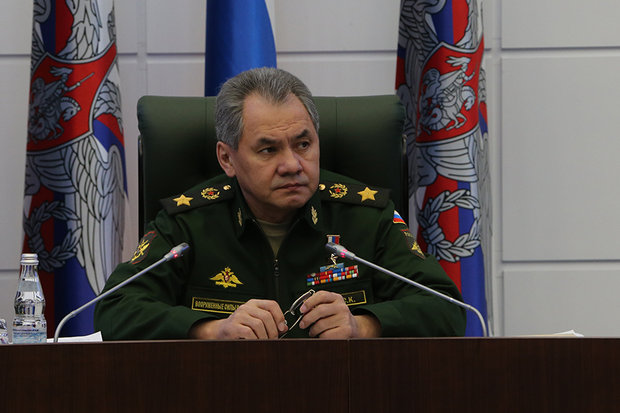Kremlin attempts to devalue Minsk efforts in demonstrating military sovereignty to NATO
 The situation has not changed
The situation has not changed

Amid enhanced contacts between Minsk and western capitals, the visit of Russian Defence Minister Sergei Shoigu to Minsk has demonstrated the inevitably close military cooperation between Belarus and Russia in response to the increased NATO presence in the Baltic States and Poland. Shoigu’s statements have devalued the Belarusian Foreign Ministry’s attempts in promoting Minsk’s neutrality and autonomy in the foreign and military policy, its non-hostile attitude towards NATO and the desire to step up cooperation with NATO. Nevertheless, the Belarusian authorities will continue attempts to disassociate themselves from the aggressive anti-NATO rhetoric, the confrontation with Western capitals, and will attempt to avoid being involved in the Russian containment policy targeting the North Atlantic alliance.
Last week, Minsk hosted a meeting of the joint board of the Russian and Belarusian Defence Ministries with the participation of Russian Defence Minister Sergei Shoigu.
Strengthening of the Belarusian defence potential is against the Kremlin’s interests, it would rather expand the Russian military presence in Belarus. President Lukashenka has repeatedly appealed to the Russian authorities with a request to provide new military equipment for the Belarusian air force, the Kremlin, however, supplied only obsolete weapons, albeit on preferential terms (for example, S-300SP). The Kremlin’s reluctance to arm Minsk with modern technology has prompted the Belarusian government to creating the MLRS Polonaise in cooperation with China.
The Belarusian authorities are resisting the Kremlin’s pressure to place Russian military bases in Belarus, albeit they preserve close military cooperation with Russia. The Belarusian authorities are likely to include the MLRS Polonaise in the Union State common defence system, which the Kremlin is aiming to use in the deterrence policy against the North Atlantic alliance. Meanwhile, the Kremlin has strengthened the military presence at the Belarusian border and aims to create additional divisions in the Russian Western Military District, which could imply the mutual distrust between the allies.
Unlike the Kremlin, Minsk aims to tone down the NATO rhetoric and has emphasised that the modernisation of the Belarusian air defence was not in response to NATO’s progress towards Belarusian borders. The Belarusian authorities seek to consolidate the normalisation trend in relations with the United States and the European Union established after the 2015 presidential election.
On the one hand, Minsk would like to disassociate from the military standout between the Kremlin and NATO, but on the other hand, the Belarusian authorities would be promoted to step up military coordination with Moscow.
Subscribe to our newsletter




Situation in Belarus
Constitutional referendum: main consequences


 Video
Video
How to count the political prisoners: are the new criteria needed?


 Video
Video
Paternalism In Decline, Belarusian Euroscepticism, And The Influence Of Russia


 Video
Video











